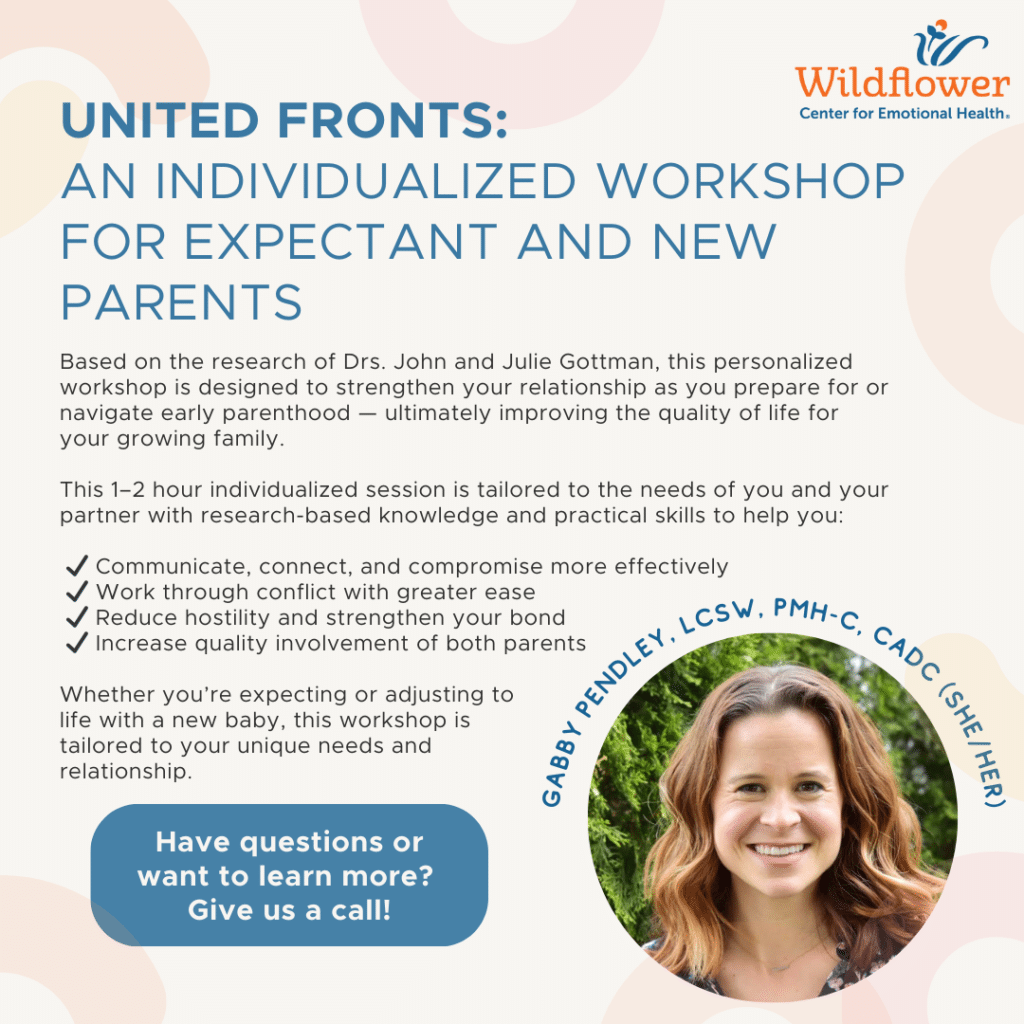
As a therapist who specializes in perinatal mental health and sex/couples therapy, I often witness what happens when romantic love meets sleep deprivation, hormonal changes, and a tiny crying human alarm clock that doesn’t come with a snooze button. In the postpartum period, partners might feel more like cranky roommates than starry-eyed soulmates. If this rings true for you, know you are not alone.
Studies have found that a majority of couples report a decline in relationship satisfaction during the first postpartum year (Cowan & Cowan, 2000; Shapiro, Gottman, & Carrère, 2000; Gottman & Gottman, 2007). Most new parents squabble over things like the “correct” way to swaddle, whose turn it is to do the laundry, or whether the bottles have been cleaned properly. Communication, intimacy, and sex frequently take a nosedive, and before you know it, your once-passionate love story starts feeling more like a business arrangement focused on diaper inventory and feeding schedules.
Why Do Postpartum Couples Struggle?
For starters, there’s the enormous shift in identity and roles: partners become parents, routines are upended, and time once reserved for each other is now devoted to keeping another human being alive. Let’s not forget the sleep deprivation, increased vulnerability to mood and anxiety disorders in the postpartum period, hormonal changes, financial stress, and often insufficient social support. Also, society tends to paint an unrealistic picture of glowing parents effortlessly balancing it all. Taken together, it’s a perfect storm for disconnection and conflict.
While many couples experience a dip in relationship satisfaction, not all do. In fact, some couples report maintaining or even strengthening their connection during this time. What’s their secret? Factors such as strong pre-baby communication skills, shared parenting responsibilities, realistic expectations, and mutual emotional support all play a protective role (Gottman & Gottman, 2007). Couples who actively prioritize their relationship, whether through regular check-ins, humor, or expressions of affection, tend to fare better.
The Power of Small Moments: Keeping Connection Alive
To stay connected through this challenging period, the first step is this: make communication a priority. This is prime time for feeling misunderstood and unsupported since both partners are exhausted and stressed. The key? Intentional check-ins. Even five minutes a day to ask, “How are you really doing?” without distractions can go a long way. Also, don’t forget that small gestures add up: a hug, a kind word, or even a goofy text will help you partner feel seen. The idea is to stay engaged and present with each other.
Teamwork Is Everything
A sense of ‘we-ness’ is essential during this time. This means that when stressors arise—and they will—you approach them as a team. Remind yourselves that you’re both navigating this new chapter together. It’s not you versus your partner; it’s both of you versus the exhaustion, the stress, and the ever-growing to-do list. By leaning on each other and tackling problems together, you’ll build a stronger foundation that can weather the challenges of parenthood.
Intimacy Without Pressure
Sexual intimacy often takes a backseat during the first postpartum year, with many couples reporting a significant decline in sexual activity and satisfaction due to factors like physical recovery, pain, exhaustion, desire discrepancy, and the emotional demands of parenting (Drozdowskyj et al., 2022). Understandably, sex might feel like the last thing on your mind.
Sex doesn’t have to mean intercourse. Holding hands, cuddling, a foot massage, showing affection, or even sharing a moment of laughter can keep the flame alive while you both adjust to your new normal. And when you’re ready for more? The best recipe contains no pressure and no guilt—just open conversations and a lot of patience. Again, you are in this together.
This Is a Phase
Lastly, keep in mind that this is a phase. You won’t always be knee-deep in diapers and 3 a.m. feedings. Your relationship may have changed, but that doesn’t mean it’s broken. It’s evolving. With a little humor, a lot of grace, and a commitment to steady communication and small moments of connection, you and your partner can emerge from the postpartum whirlwind stronger than ever.
Seek Support
If you’re feeling a little lost in this transition, couples therapy can help. Therapy fosters intentionality and helps you prioritize your bond as a couple. Working through your struggles and learning new ways to connect may be exactly what your relationship needs.

At Wildflower, our therapists specialize in helping individuals and couples confront the challenges of the perinatal period. In addition to individual and couples therapy, we offer individualized United Fronts workshops for expectant and new parents based on the groundbreaking research of Drs. John and Julie Gottman. More info can be found below. To learn more, reach out to us at 312.908.0298 or via our online inquiry form.

References
Cowan, C. P. & Cowan, P. A. (2000). When parents become partners: The big life change for couples. New Jersey: Erlbaum.
Drozdowskyj, E. S., Gimeno Castro, E., Trigo López, E., Bárcenas Taland, I., & Chiclana Actis, C. (2020). Factors influencing couples’ sexuality in the puerperium: A systematic review. Sexual Medicine Reviews, 8(1), 38-47.
Gottman, J. M., & Gottman, J. S. (2007). And baby makes three: The six-step plan for preserving marital intimacy and rekindling romance after baby arrives. New York: Crown Publishers.
Lisitsa, E. (2013). Bringing baby home: The research. The Gottman Institute. https://www.gottman.com/blog/bringing-baby-home-the-research/
Shapiro, A. F., Gottman, J. M., & Carrère, S. (2000). The baby and the marriage: Identifying factors that buffer against decline in marital satisfaction after the first baby arrives. Journal of Family Psychology, 14(1), 59–70.

